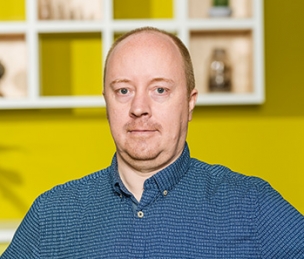Displaying 1 - 6 of 6
-
Seyfeddinipur, M., Ameka, F., Bolton, L., Blumtritt, J., Carpenter, B., Cruz, H., Drude, S., Epps, P. L., Ferreira, V., Galucio, A. V., Hellwig, B., Hinte, O., Holton, G., Jung, D., Buddeberg, I. K., Krifka, M., Kung, S., Monroig, M., Neba, A. N., Nordhoff, S. and 10 moreSeyfeddinipur, M., Ameka, F., Bolton, L., Blumtritt, J., Carpenter, B., Cruz, H., Drude, S., Epps, P. L., Ferreira, V., Galucio, A. V., Hellwig, B., Hinte, O., Holton, G., Jung, D., Buddeberg, I. K., Krifka, M., Kung, S., Monroig, M., Neba, A. N., Nordhoff, S., Pakendorf, B., Von Prince, K., Rau, F., Rice, K., Riessler, M., Szoelloesi Brenig, V., Thieberger, N., Trilsbeek, P., Van der Voort, H., & Woodbury, T. (2019). Public access to research data in language documentation: Challenges and possible strategies. Language Documentation and Conservation, 13, 545-563. Retrieved from http://hdl.handle.net/10125/24901.
Abstract
The Open Access Movement promotes free and unfettered access to research publications and, increasingly, to the primary data which underly those publications. As the field of documentary linguistics seeks to record and preserve culturally and linguistically relevant materials, the question of how openly accessible these materials should be becomes increasingly important. This paper aims to guide researchers and other stakeholders in finding an appropriate balance between accessibility and confidentiality of data, addressing community questions and legal, institutional, and intellectual issues that pose challenges to accessible data. -
Broeder, D., Sloetjes, H., Trilsbeek, P., Van Uytvanck, D., Windhouwer, M., & Wittenburg, P. (2011). Evolving challenges in archiving and data infrastructures. In G. L. J. Haig, N. Nau, S. Schnell, & C. Wegener (
Eds. ), Documenting endangered languages: Achievements and perspectives (pp. 33-54). Berlin: De Gruyter.Abstract
Introduction Increasingly often research in the humanities is based on data. This change in attitude and research practice is driven to a large extent by the availability of small and cheap yet high-quality recording equipment (video cameras, audio recorders) as well as advances in information technology (faster networks, larger data storage, larger computation power, suitable software). In some institutes such as the Max Planck Institute for Psycholinguistics, already in the 90s a clear trend towards an all-digital domain could be identified, making use of state-of-the-art technology for research purposes. This change of habits was one of the reasons for the Volkswagen Foundation to establish the DoBeS program in 2000 with a clear focus on language documentation based on recordings as primary material. -
Trilsbeek, P., & Wittenburg, P. (2007). "Los acervos lingüísticos digitales y sus desafíos". In J. Haviland, & F. Farfán (
Eds. ), Bases de la documentacíon lingüística (pp. 359-385). Mexico: Instituto Nacional de Lenguas Indígenas.Abstract
This chapter describes the challenges that modern digital language archives are faced with. One essential aspect of such an archive is to have a rich metadata catalog such that the archived resources can be easily discovered. The challenge of the archive is to obtain these rich metadata descriptions from the depositors without creating too much overhead for them. The rapid changes in storage technology, file formats and encoding standards make it difficult to build a long-lasting repository, therefore archives need to be set up in such a way that a straightforward and automated migration process to newer technology is possible whenever certain technology becomes obsolete. Other problems arise from the fact that there are many different groups of users of the archive, each of them with their own specific expectations and demands. Often conflicts exist between the requirements for different purposes of the archive, e.g. between long-term preservation of the data versus direct access to the resources via the web. The task of the archive is to come up with a technical solution that works well for most usage scenarios. -
Broeder, D., Claus, A., Offenga, F., Skiba, R., Trilsbeek, P., & Wittenburg, P. (2006). LAMUS: The Language Archive Management and Upload System. In Proceedings of the 5th International Conference on Language Resources and Evaluation (LREC 2006) (pp. 2291-2294).
-
Trilsbeek, P., & Wittenburg, P. (2005). Archiving challenges. In J. Gippert, N. Himmelmann, & U. Mosel (
Eds. ), Essentials of language documentation (pp. 311-335). Berlin: Mouton de Gruyter. -
Wittenburg, P., Skiba, R., & Trilsbeek, P. (2005). The language archive at the MPI: Contents, tools, and technologies. Language Archives Newsletter, 5, 7-9.

Share this page